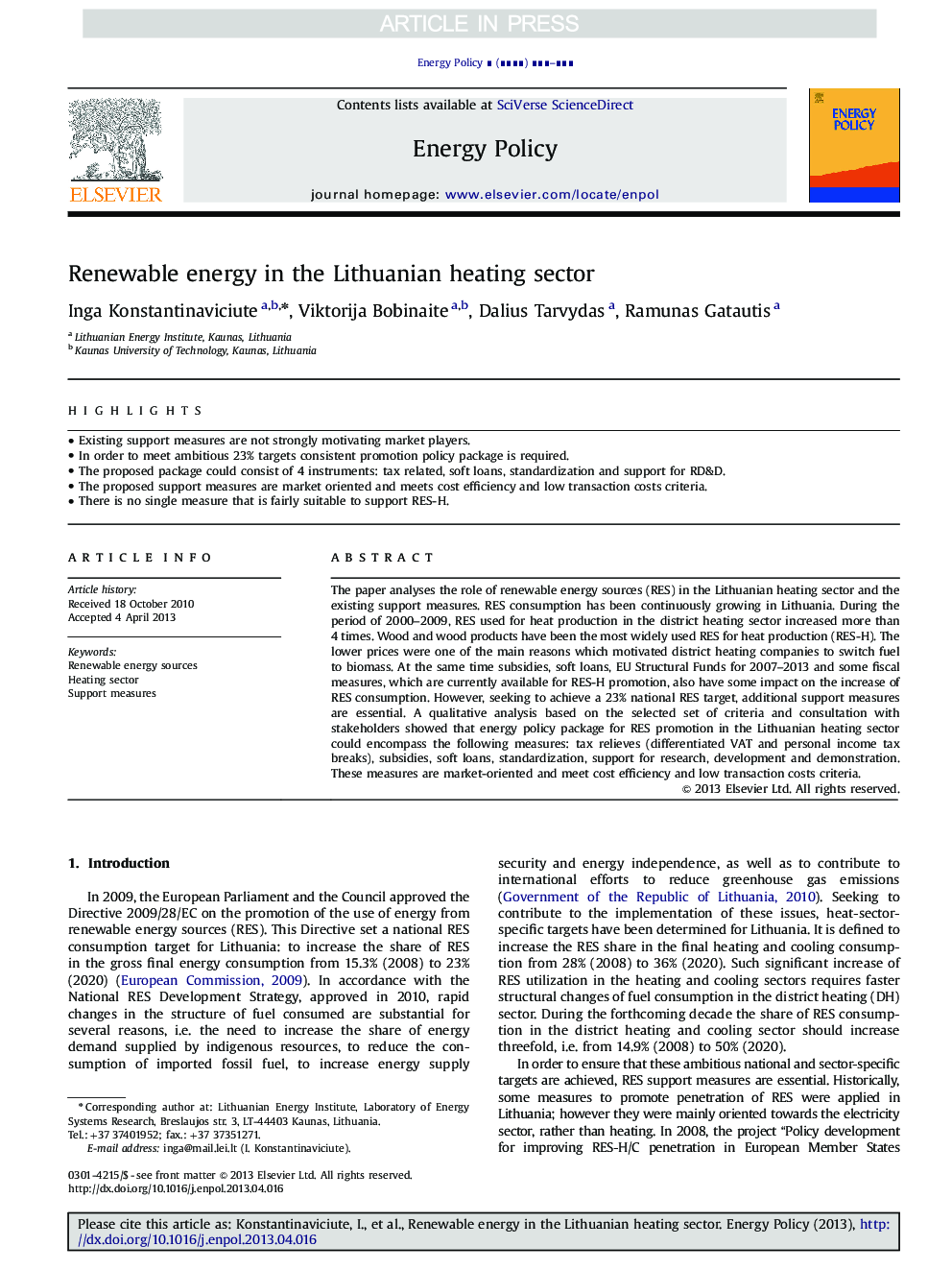| Article ID | Journal | Published Year | Pages | File Type |
|---|---|---|---|---|
| 7404091 | Energy Policy | 2013 | 12 Pages |
Abstract
The paper analyses the role of renewable energy sources (RES) in the Lithuanian heating sector and the existing support measures. RES consumption has been continuously growing in Lithuania. During the period of 2000-2009, RES used for heat production in the district heating sector increased more than 4 times. Wood and wood products have been the most widely used RES for heat production (RES-H). The lower prices were one of the main reasons which motivated district heating companies to switch fuel to biomass. At the same time subsidies, soft loans, EU Structural Funds for 2007-2013 and some fiscal measures, which are currently available for RES-H promotion, also have some impact on the increase of RES consumption. However, seeking to achieve a 23% national RES target, additional support measures are essential. A qualitative analysis based on the selected set of criteria and consultation with stakeholders showed that energy policy package for RES promotion in the Lithuanian heating sector could encompass the following measures: tax relieves (differentiated VAT and personal income tax breaks), subsidies, soft loans, standardization, support for research, development and demonstration. These measures are market-oriented and meet cost efficiency and low transaction costs criteria.
Keywords
Related Topics
Physical Sciences and Engineering
Energy
Energy Engineering and Power Technology
Authors
Inga Konstantinaviciute, Viktorija Bobinaite, Dalius Tarvydas, Ramunas Gatautis,
